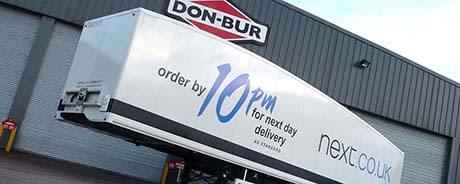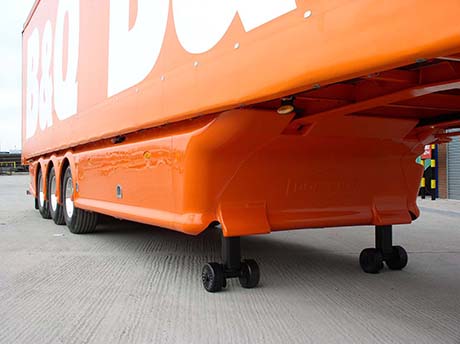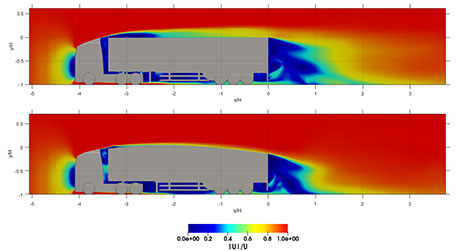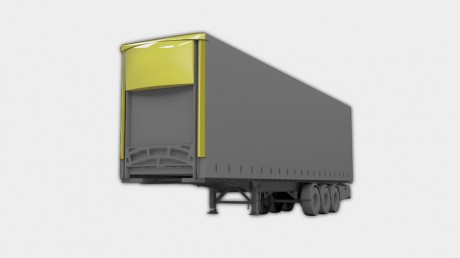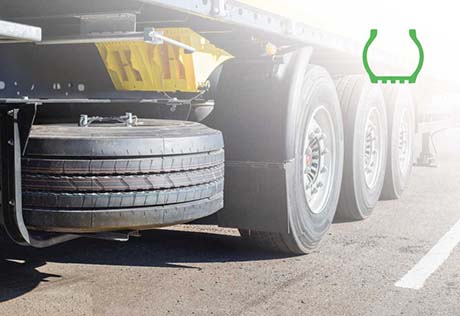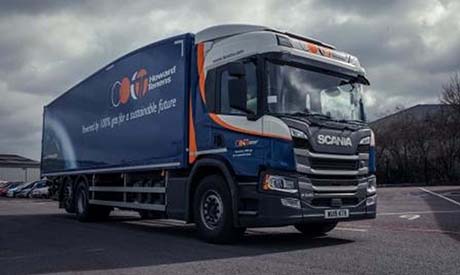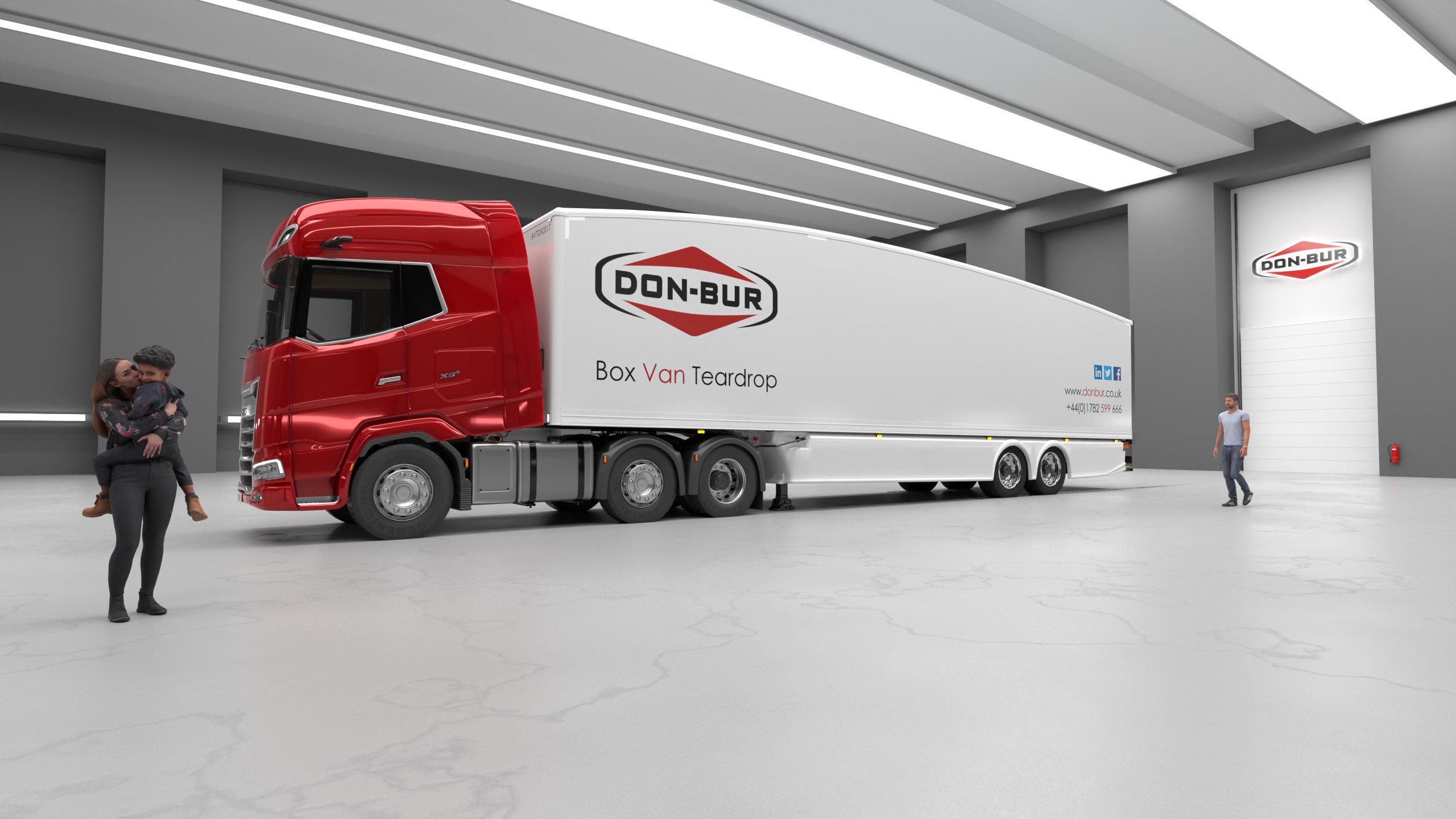
The Teardrop™ Aerodynamic Trailer | 11.3% Fuel Saving
Designed for Efficiency and Savings
The Don-Bur Teardrop™ is the world’s most recognised aerodynamic and fuel-efficient trailer, designed to minimise drag and reduce fuel consumption. Its organic shape optimises airflow, lowering fuel use by an average of 11.3%. This makes it a preferred choice for operators aiming to cut costs and emissions.
Key Benefits
- Proven Fuel Savings – Independently verified 11.3% reduction in fuel consumption.
- Optimised Airflow – The curved roofline reduces turbulence.
- Lower Emissions – Reduce CO₂ output and meet sustainability targets.
- Fleet-Wide Efficiency – Reduce operating costs while maintaining full load capacity.
We’d love to hear from you – get in touch today!
Features of the Don-Bur Teardrop™ Trailer
- Aerodynamic Profile: Reduces wind resistance and improves fuel efficiency.
- Fuel-Saving Design: Independently tested to achieve 11.3% lower fuel consumption.
- Full Load Space: Maintains standard 26 UK pallet capacity.
- Versatile Fit: Adaptable to different fleet configurations.


The Origin of the Teardrop™ Trailer
In 2006, Don-Bur pioneered the first-ever Teardrop™ aerodynamic trailer, transforming the way trailers cut through the air. Its design was inspired by the natural aerodynamics of a water droplet, a shape proven to minimise drag.
This concept aligns with early automotive innovations like the Tropfenauto ("Teardrop Car"), the world’s first streamlined vehicle. Just as car manufacturers embraced aerodynamics to improve fuel efficiency, Don-Bur applied the same principles to commercial trailers—an industry first.
Designed and manufactured in the UK, the Teardrop™ trailer remains the benchmark for fuel-efficient road transport.
Automotive Aerodynamics Today
For decades, the automotive industry has embraced aerodynamics to improve fuel efficiency. Modern vehicles feature low-drag designs, from streamlined bodywork to underbody fairings, reducing wind resistance and cutting fuel consumption.
Now, these same aerodynamic principles are transforming the commercial vehicle sector. Traditional trailers create significant drag, but aerodynamic trailers—like the Don-Bur Teardrop™—apply proven airflow technology to minimise turbulence, delivering measurable fuel savings and lower CO₂ emissions.
As sustainability targets tighten, aerodynamic design HGVs are becoming the standard for fuel-efficient logistics.


Standard Trailer – High Drag, High Fuel Consumption
Traditional box-shaped trailers create significant aerodynamic drag, increasing fuel consumption and emissions. Their flat front, rear, and top surfaces disrupt airflow, causing turbulence and resistance.
As air moves over the trailer, it forms a vacuum at the rear, pulling the vehicle backward. This effect, combined with high-pressure zones at the front, forces the engine to work harder—leading to higher fuel costs and reduced efficiency.
Teardrop™ Trailer – A True Aerodynamic Trailer
The Don-Bur Teardrop™ is an aerodynamic trailer designed to minimise drag and maximise fuel efficiency. Its curved roofline guides air smoothly over the vehicle, reducing resistance and lowering fuel consumption.
Unlike standard trailers, the Teardrop™ prevents excessive turbulence, allowing for a more efficient attached airflow. This streamlined design requires less energy, delivering proven fuel savings and CO₂ reductions.


Fuel Savings – Proven Performance
On average, operators using the Don-Bur Teardrop™ aerodynamic trailer achieve a verified 11.3% reduction in fuel consumption.
Discover how real-world fleets have cut costs and lowered emissions:
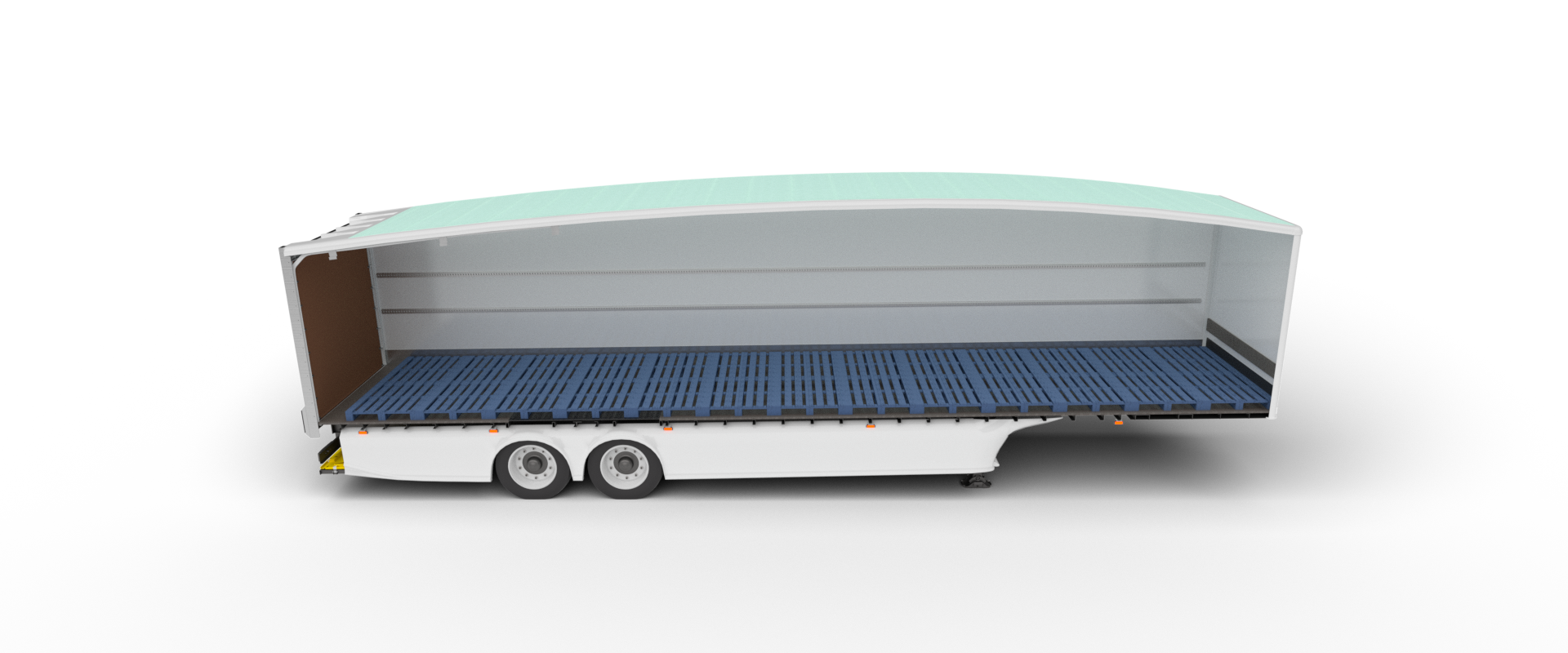
Internal Load Capacity – No Compromise on Space
The Don-Bur Teardrop™ aerodynamic trailer maintains a full load footprint, ensuring no reduction in cargo capacity. A standard 13.6m Teardrop™ trailer accommodates 26 UK pallets, just like a conventional trailer.
To retain a generous rear aperture height, the chassis can be lowered at the rear, allowing the roofline to curve without compromising loading access or internal volume.
Impact on CO₂ Emissions
CO₂ emissions are directly linked to fuel use. Every litre of diesel burned produces 2.63 kg of CO₂.
A standard trailer covering 60,000 miles annually at 8.5 mpg burns 32,080 litres of diesel, emitting 84.37 tonnes of CO₂. A 10% fuel reduction cuts emissions by 8.4 tonnes per vehicle per year.


Teardrop™ Intellectual Property Protection
The following intellectual property rights are active:
- Patents: GB2443035 and GB2474379.
- Community Registered Designs: 000867593-0001, 000709423-0002, and 000709423-0001.
360 Viewer
Take a virtual walk around an example design in our 360 panoramic viewer.
Scene menu buttons on the left of the viewer window allow you to navigate around the trailer to look at specific features.

Aerodynamic Efficiency That Sets You Apart
Teardrop™ trailers aren’t just about saving fuel—they position businesses as sustainability leaders.
With rising environmental targets, fuel-saving trailers are setting a new standard for efficiency. Operators investing in aerodynamic solutions gain a competitive advantage, appealing to eco-conscious clients.
Published: Wed 24 Jan 2024 (Edited: Thu 13 Mar 2025)

